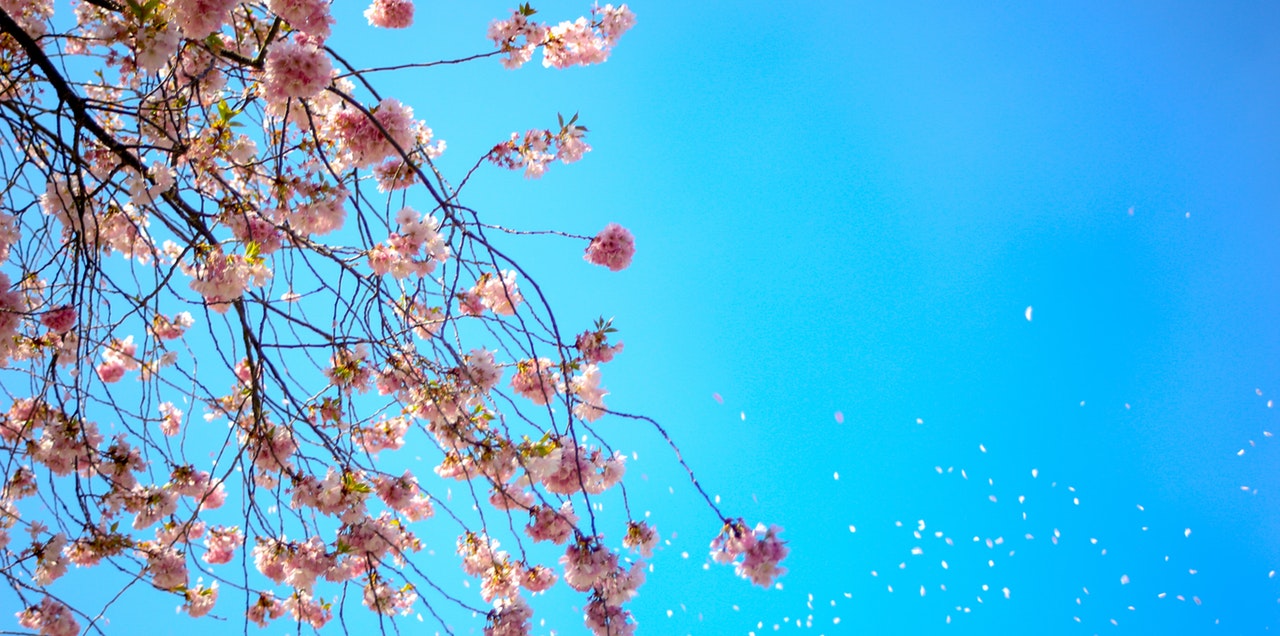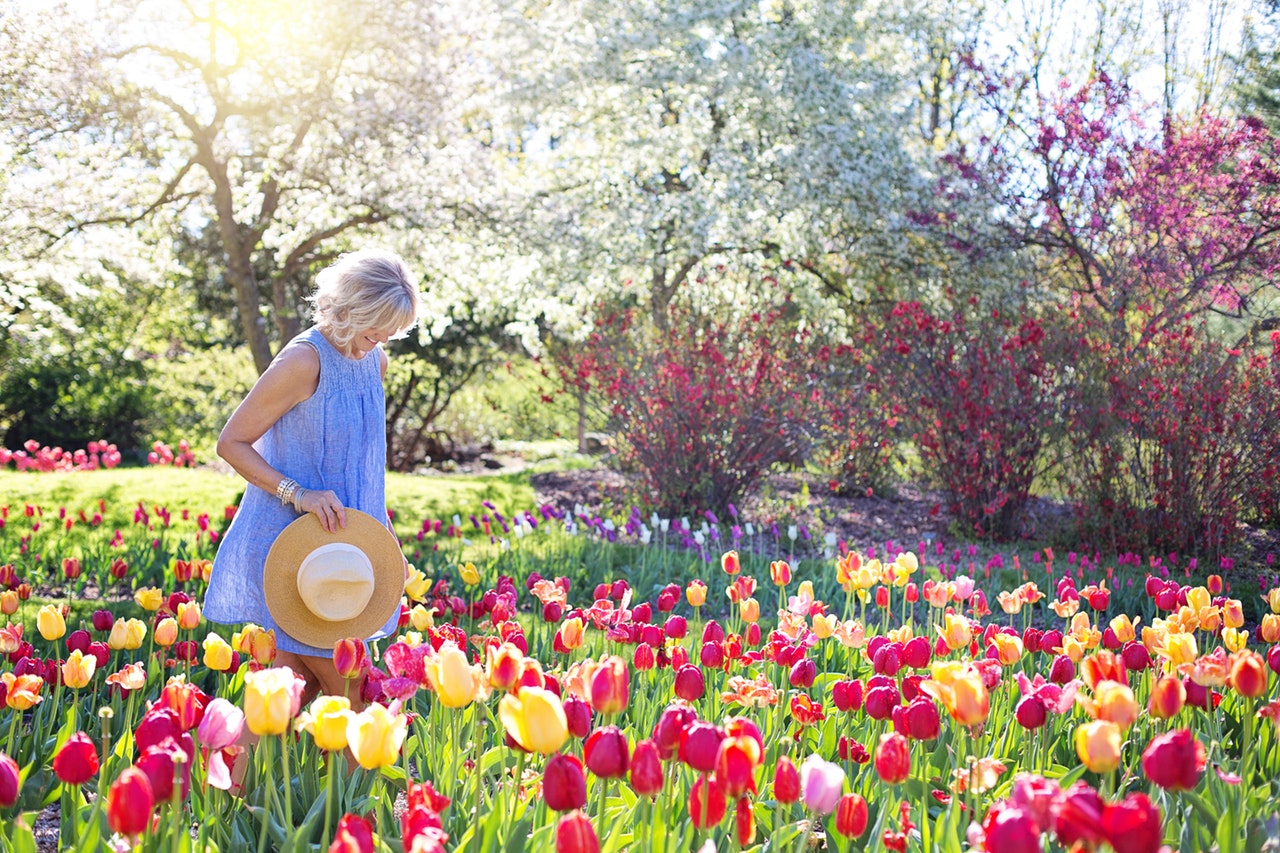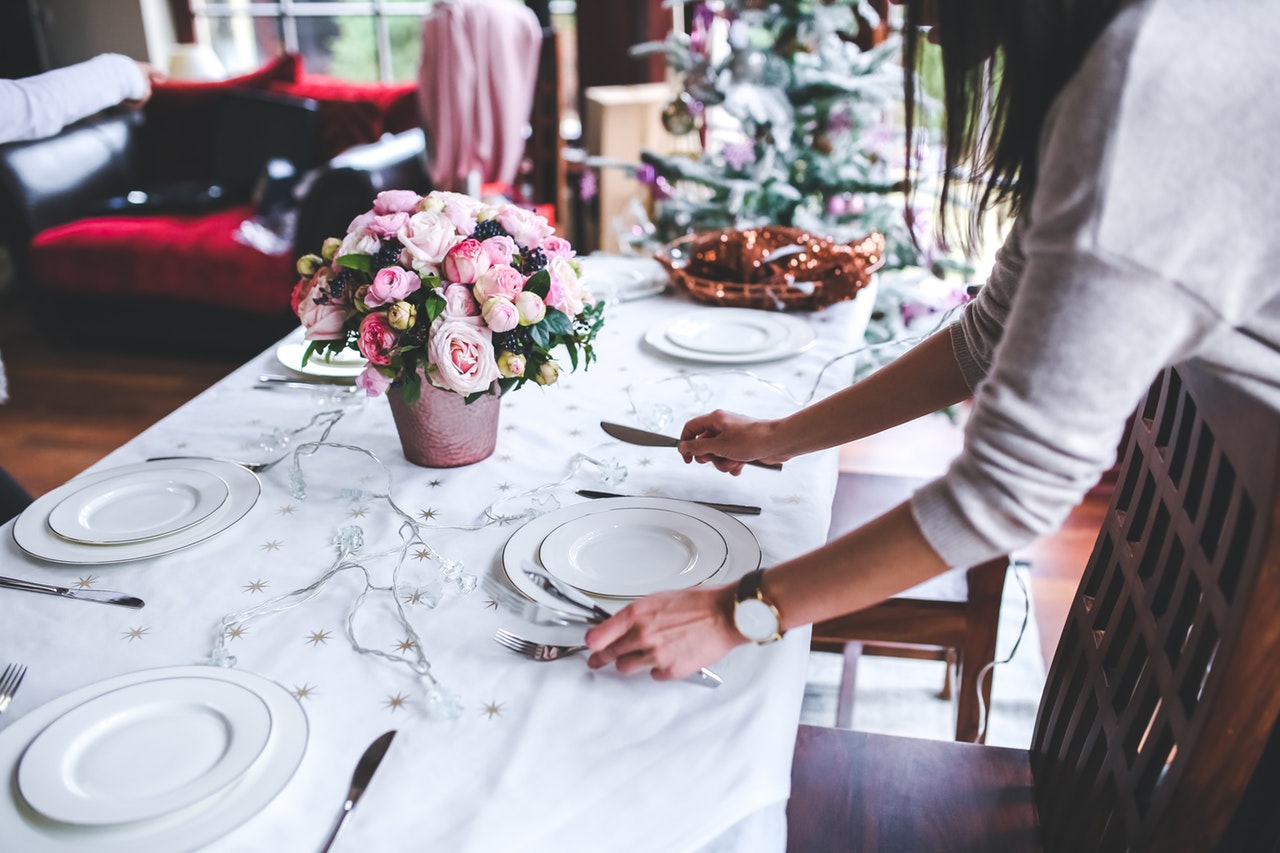- Acupuncture & Herbal Clinic5341 Wyoming Blvd. NE
Suite C
Albuquerque, NM 87109(505) 822-1490 Clinic Hours
Tue10-6Wed1-6Thu10-6Sat12-5
-
Latest Articles:
- • Add These 10 Immune-Boosting Foods to Your Fall Diet •
- • Keep Your Skin Healthy and Glowing with these Fall Skincare Tips •
- • Beat End of Year Burnout with these Fall Self-Care Rituals •
- Sign up to receive news and updates and get my free report:“The Top 10 Reasons to Try Acupuncture”

Health WellNews
Traditional Chinese Medicine and Spring
Spring is generally regarded as a happy season, especially for those that live in areas where winter is cold and dark. Spring brings with it longer days, more sunshine, the rebirth of plants and more activity. But for many, the months of spring can also bring irritability, anxiety, sinus issues, allergy flare-ups and even colds.

Traditional Chinese Medicine (TCM) has been around for nearly 3,000 years, which gives the medical system, as a whole, a lot of credibility. TCM classifies things in many different ways. There are five seasonal associations in TCM – winter, spring, summer, late summer and fall. Each season has its own unique set of properties and associations. Spring is associated with the wood element. The wood element governs the liver and the gallbladder and their energetic pathways in TCM. The five seasons and their corresponding elements interact with one another daily, creating balance and harmony or complete chaos within the body.
The season of spring is a time of expansive movement and growth. Spring is a time of creativity and planning. Since the liver and gallbladder are associated with the tendons and are responsible for the smooth flow of energy and blood throughout the body, our daily activities should reflect this. Being more active and spending more time outside can be great ways to strengthen the liver and gallbladder energies during the months of spring. We should imitate the budding trees and flowers and allow ourselves to grow and reach for bigger and better goals during the spring.
The color green is the color of spring in TCM. During these months, fresh greens are abundant. It is highly recommended that we incorporate more fresh greens into our daily diets. Greens have been shown to be very beneficial for helping the liver do its job, detoxifying the blood. Dandelion greens, in particular, are a good source for detoxification, which ultimately strengthens the liver and gallbladder meridians.
It is also recommended to avoid excessive stimulants during the spring months. Things like coffee are considered expansive and energizing, which can be somewhat helpful during the cold winter months. But during the spring, when life is abounding, excess energy can actually be harmful to the body. It can create headaches, insomnia, anger and more.
When a person is completely balanced, transitioning from one season to another is not such a big deal. However, knowing what elemental type you are can also be very beneficial in determining how you will react to each passing season. For instance, a person who has a wood element constitution, may experience anger during the spring. This is because the wood element is already closely associated with the emotion of anger and spring brings added stimuli that can trigger fits of rage.
One way to keep the body balanced is through acupuncture and TCM. The body is designed to maintain proper balance, but we tend to not pay attention to the warning signs until we experience pain or illness. Getting regular acupuncture treatments can work as preventive medicine, providing harmony throughout every season of the year.
If you experience feelings of anxiety, anger or even self-loathing, acupuncture can help. It can also help with those seasonal allergies that might flare up. Acupuncture is a wonderful way to maintain health and balance all year long. Be sure to find a fully licensed acupuncturist in your area, so you can enjoy spring without any emotional or physical impairments.
Reasons You Should Get Acupuncture This Spring
Muscles Feel Stiff and Tight: This can be caused from the lack of movement throughout the winter months. If this is something you experience at the beginning of spring, then acupuncture can help. The liver and gallbladder nourish the tendons, ligaments and connective tissues throughout the body. During the winter months, many people forget to drink water and this can affect the muscles and joints. Acupuncture can actually stimulate the flow of blood to the muscles and joints which allows them to heal and become flexible again.
Irritability or Anger: Many people report they feel irritable or angry during the spring. This is because the emotion associated with the liver is anger. When the liver is imbalanced, the emotions can become stagnant. Acupuncture is a great way to balance the liver and the emotions.
Eyes are Irritated: The liver, the organ associated with spring, opens to the eyes. Therefore, any issues related to the eyes and eye health are usually attributed to liver imbalance. This may include dry eyes, eye fatigue, allergies and pain. Studies have shown acupuncture is more effective than Western Medicine and over-the-counter medications for eye issues.
Does Your Liver Need a Spring Tune-Up?
In Traditional Chinese Medicine, each season is ruled by a particular organ system and spring is connected to the liver. What does this mean? Well, you probably notice changes in the way you feel, both physically and mentally, as the seasons change. We tend to feel a bit more contemplative and introspective during the winter months. Once spring hits, we’re ready to recharge and get things done. The liver energy is strong and assertive, the type of energy you need to create plans and then propel them into motion. However, if your liver is a little out of balance, you might notice you are more irritable or on edge than usual.

Here Are a Few Signs That Your Liver is in Need of an Acupuncture Tune-Up:
1. You’ve noticed an increase in headaches lately, and these headaches seem to feel worse when you aren’t active. Generally these headaches tend to manifest at the vertex of your head.
2. You might begin to feel constipated or bloated. Your bowel movements might become irregular, alternating between constipation and loose stools. Hard, difficult stools that appear pebbly are also a sign of liver imbalance.
3. Your friends or coworkers are scared of you, because you are cranky, cranky, cranky. When liver energy is out of balance, you might feel agitated, irritated and generally out of sorts. Sometimes irritation can expand into outright anger more easily than it would if this energy was flowing smoothly.
4. Ladies, you may notice your PMS symptoms have been worse lately. Bloating, breast tenderness, sensitivity…you can blame all of the above on your liver. If your periods are more painful or clotted, this is also due to a stagnation of liver energy.
5. Your eyes are red, itchy or irritated.
6. Your shoulders, neck or jaw are uncomfortably tight. If the liver energy is out of balance, it can flow upward. This causes everything in your body to rise up: you might grind or clench your teeth, your shoulders will levitate up around your ears, and you might experience symptoms of Temporomandibular joint dysfunction (TMJ)
7. Your allergies are in full force, complete with itchy, red, watery eyes.
If you are suffering from any of these issues, your body is crying out for a visit to your acupuncturist!
Ways to Shui Your Day
Feng Shui (pronounced “fung shway”) is defined as a Chinese system of laws that govern the spatial arrangement and orientation in relation to the flow of energy and whose favorable or unfavorable effects are taken into account when designing buildings or laying out floor plans. In layman’s terms, it means balancing the energies of any given space to assure health and good fortune for those living there. Feng translates into wind and shui translates into water. So when there is good feng shui, a person or place is considered healthy and when there is bad feng shui, there may be disease and disaster.
Create A Sacred Space
Having a place where you can feel peaceful is essential. This space should be intended for meditation and inner reflection. It should be comfortable, quiet and calming. In this space, you should try to focus on your breathing and silently repeat a mantra to yourself.
Complete Unfinished Projects
If there are things around the house that need to be completed, take the time to do them. Hang those pictures, unpack those boxes, fix that leaky faucet or change that burnt out lightbulb. By leaving things undone, your energy can become depleted and you set up barriers keeping you from doing the things you love.
End Each Day With Rituals
Just as you did in the morning, establish rituals to end your day, de-stress and bring about peaceful sleep. Allow yourself at least one hour of time without any television or computer, so that your mind and body can start to unwind. In your journal, write down three to five things you appreciated over the past 24 hours. And most of all, say a prayer of thanks. Gratitude is the most important thing you can do to bring positive energy into your daily life.
Acupuncture: The Liver and Spring
There is a lot of history and theory behind Traditional Chinese Medicine (TCM) when you consider it is a medical system about 3,000 years old. There are five elements and five seasons in TCM. Each element has numerous associations that relate it to the theory of TCM. The elements and their associations provide one way for TCM practitioners to diagnose the ailments of their patients.

The season of spring is the season of the wood element and the liver energetic pathway. Spring is a time of growth and this is evident by all the plants and flowers coming into bloom, as well as the wildlife awakening from the winter slumber. Spring is the time of birth and regeneration. This season tends to be trademarked by optimism and opportunity.
Spring is linked to the wood element in TCM due to the prospects of growth and development. When a tree is nourished properly, it will grow and expand. This is very similar to what happens with the body and spirit within every living being. Just like the wood that makes up the trunk of the tree, we must be able to be flexible and bend, always changing and adapting to whatever comes our way. We need to remain strong and rooted, yet able to give a little if needed.
Wood element people tend to be well motivated and organized. They are planners and doers, always having things mapped out and ready for any situation. These people are completely dedicated to anything they pursue. They tend to initiate creativity and walk a path towards success. However, wood element people can be very vulnerable in their livers. In TCM, the liver and its energetic pathway deal with the ability to freely express emotions and anger is the emotion linked to the liver. When feelings are suppressed or blocked, physical symptoms like hopelessness, indigestion, bloating and resentment can manifest.
The color green is beneficial to supporting the liver’s detoxification function and it also strengthens vision. Incorporating green foods will greatly improve the function of the liver and help keep the wood element personality balanced. And as spring is the time of year when there is an abundance of fresh greens available, it makes perfect sense to incorporate them into the daily diet more regularly.
Along with eating more greens during the spring, it is recommended other healthy habits be incorporated as well. Regular stretching is a good way to start and end the day. The liver controls the tendons in TCM, storing blood during periods of rest and releasing it to the tendons during times of activity. Adding yoga or tai chi into the daily routine can be very beneficial for the liver, tendons and the whole body.
Drinks and foods that are sour are believed to stimulate the liver’s healing abilities. Adding lemon slices in your drinking water or using vinegar and oil as a salad dressing are some good examples. However, if you are a person that has anger issues, sour tastes should be avoided, as this can send the liver into overdrive.
When the weather warms in the spring, it is a great time to be more active outdoors. Fresh air helps the liver to function properly and decreases any stagnation being experienced in the body. This can help with anger issues too.
As with any seasonal change, adding acupuncture treatments can be a huge asset, but especially in the transition from winter to spring. Due to the winds picking up and the weather becoming warmer, things like bell’s palsy, allergies or sinus infections can become more prevalent. Using acupuncture as preventive medicine can vastly improve your chances of remaining healthy throughout the transition. So for the sake of your liver and your overall health, be sure to connect with a locally licensed acupuncturist today. You won’t regret it.
Five Acupuncture Points for Winter
Winter is a word that conjures up many different images, including snowmen, sleigh rides and holidays. During the winter months, nature is resting and replenishing itself for the upcoming spring. And as we are part of nature, we should also be focusing on rest and relaxation.

Traditional Chinese Medicine (TCM) teaches that we should live in harmony with the seasons. When we don’t, that’s when disease and illness occur. Living in harmony with the season of winter means we should avoid eating excessively cold or raw foods, we should focus our attention inward and we should make time to relax and rejuvenate our bodies.
Winter is associated with the element of water, the kidneys and the urinary bladder. The kidney energetic pathway opens to the ears and therefore, they should be protected from the cold that occurs during the winter months. Every major organ in the body is also assigned an energetic pathway in TCM theory. These pathways allow energy or Qi (pronounced “chee”) to flow throughout the body, which keeps everything functioning properly. When the Qi becomes deficient, stagnant or blocked, then disease can develop. During the season of winter, this may manifest as ear aches, low back pain, knee pain, urinary issues, anxiety or fatigue.
To keep the kidney and urinary bladder functioning properly within the TCM system, things like acupuncture, herbal formulas, nutritional counseling and practices like qi gong or tai chi may need to be incorporated. There are over 350 acupuncture points on the body, but there are some that work exceptionally well during the winter season to help keep the body free from disease.
KIDNEY 3 – This point is located bilaterally on the inner lower leg, in the depression just behind the medial malleolus. Kidney 3 is a very important point that can help with everything from low back pain to ear aches.
SPLEEN 6 – This point is located bilaterally on the inner lower leg, about three thumb-breadths above the inner malleolus. Spleen 6 can help improve immune system function and fight fatigue.
LIVER 3 – This point is located bilaterally on the top of the foot, in the depression about one thumb-breadth from the edge of the webbing between the first and second toes. This point can be used to decrease headaches and help with some urinary issues.
STOMACH 36 – Located bilaterally on the outer lower leg, it can be found one finger-breadth from the border of the upper tibia and about three thumb-breadths below the lower border of the knee cap. Stomach 36 is known as the longevity point in TCM and is frequently used by practitioners. It can help with fatigue, dizziness and knee pain.
URINARY BLADDER 23 – Located bilaterally, on either side of the spine, it can be found one and a half thumb-breadths from the lower border of the second lumbar vertebra. Urinary Bladder 23 is another frequently used point that helps with deafness, dizziness, knee pain, low back pain and urinary issues.
Any of these points can be used alone or in conjunction with others. They can be manually stimulated using pressure from a finger or dull, rounded tool. But for best effects, it is recommended acupuncture be applied.
Fight Holiday Stress with Acupuncture
The holidays are supposed to be a time of joy, celebration and love. But for many, the holidays mean added stress, anxiety and lack of sleep. Some polls show Americans spend an average of 42 hours annually on holiday activities. This could be anything from shopping to traveling to preparing food. And all of that adds up to extra stress that deteriorates the body and mind. Mental and physical stress then translates into oxidative stress at the cellular level. Oxidative stress, over time, can actually lead to disease.

The good news is there are many ways to deal with and handle added holiday stress. One of these ways is through the use of Traditional Chinese Medicine (TCM). This medical system has been around for nearly 3,500 years and can greatly improve our quality of life. TCM is a holistic and natural way to combat anxiety and stress. Acupuncture is one of the modalities this medical system utilizes. Acupuncture has the ability to induce deep relaxation throughout the mind, body and soul. In fact, many people report falling asleep during their acupuncture treatments.
Numerous studies have been done to show how acupuncture can decrease stress. A study at Yale University showed auricular, or ear acupuncture, significantly lowered stress levels in mothers whose children were undergoing surgery. Multiple studies also confirm acupuncture can lower both systolic and diastolic blood pressure readings. And blood pressure is one of the first physical signs a person is stressed out.
In TCM, each season is associated with an element. Winter is associated with the element of water. Starting every day during the holidays/winter season with a large glass of room temperature water can not only keep the body hydrated, but it can also prevent added stress at the cellular level. From a metaphorical stance, water is calming to the mind and body. So when we feel that twinge of anxiety coming on, visualizing water, like an ocean or a lake, can actually help decrease the stress levels.
As mentioned above, chronic stress can lead to oxidative stress at the cellular level. Chronic pain sufferers can attest to how stress affects their bodies. For many people who deal with diseases like fibromyalgia, the excess stress around the holidays can actually increase the amount of pain in the body. Regular acupuncture treatments, even during the holidays can be very beneficial for those who have chronic health and pain issues. Acupuncture can reduce inflammation and relieve pain in as few as one to two treatments.
Another helpful tip to deal with holiday stress, is to get out in nature. Yes, it can be cold during the holiday season. However, studies show spending even as little as five minutes outside among nature can lower blood pressure and decrease stress. And what better way to admire the beautiful lights and decorations that frequent so many neighborhoods during this time of year, than to step outside for a breath of fresh air or a quick walk around the block?
Acupuncture is also a wonderful tool to combat Acupuncture is also a wonderful tool to combat insomnia that can frequently wreak havoc around the holidays. Traveling, packing and multiple holiday events can really interfere with getting a good night’s sleep. Acupuncture can definitely help with that. Because it is so relaxing, many people take healing power naps when they are receiving their acupuncture treatments.
Before the holiday season kicks in, contact a locally licensed acupuncturist to discuss how they can help you deal with stress and anxiety. You’ll be glad you did.

